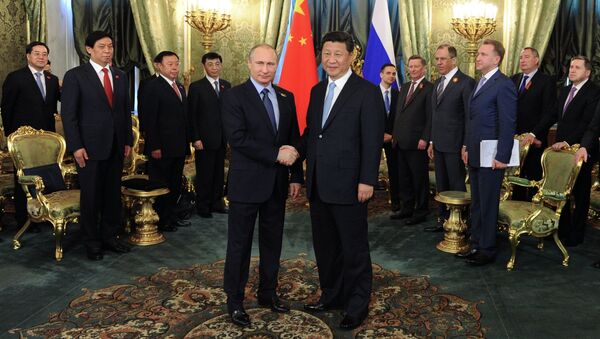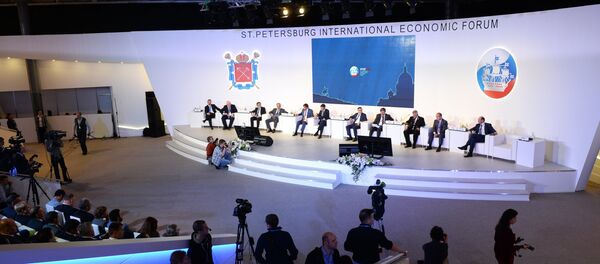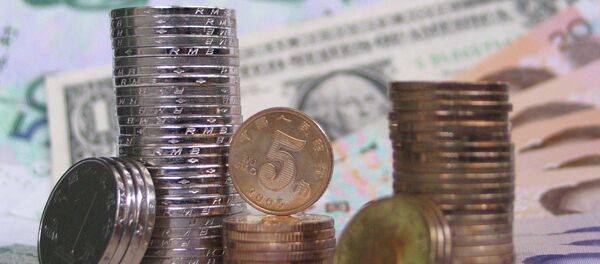While the West is extending its anti-Russian sanctions, the Kremlin's pivot to China looks more and more real, Berlin-based writer and publicist Leonid Bershidsky underscored, adding that eventually sanctions played into Moscow's hands, triggering "much need market diversification" and development of Russia's eastern regions.
"It would be wrong to discount Russia's swing toward China as just a PR campaign to convince Russians their country can do without the West. Russia is a big ship and turning it around is not a quick exercise, but the trend toward closer economic ties with China is real," Mr. Bershidsky emphasized.
According to the writer, Beijing's direct investments in Russia's economy have grown up to $1.3 billion from $450 million. It is yet a "tiny amount," but at the same time a sign of change, he elaborated.
Moreover, "Chinese loans became by far the biggest source of foreign financing for the Russian economy last year. According to Central Bank data, Russia's non-financial sector and households received $11.6 billion in net new loans from China," Mr. Bershidsky pointed out.
A big amount of this money is going to Russian oil companies, namely state-controlled Rosneft, which has in its turn also increased sales to China.
"In May, Russia sent 930,000 barrels of oil per day to China, overtaking Saudi Arabia in that market for the first time," the publicist underscored.
Meanwhile, European major energy companies have acknowledged the trend. For instance, this month BP bet on the growth of Russia's energy trade with China by paying $750 million for a 20 percent stake in Rosneft subsidiary Taas-Yuriakh Neftegazodobycha, according to the publicist. Taas-Yuriakh Neftegazodobycha is licensed to explore a large oil field next to China's northern border, he elaborated.
"In that respect, sanctions have done Russia a favor. They have forced the regime to accelerate much-needed market diversification and to pay more attention to the country's huge, underdeveloped eastern regions," Mr. Bershidsky stressed.




